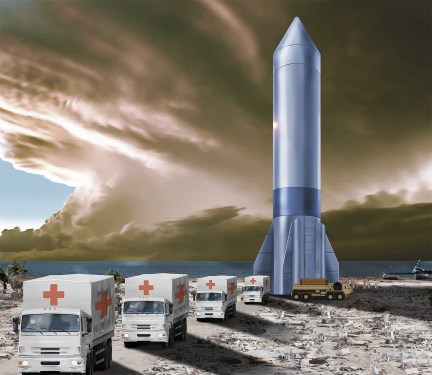Blue Origin and Anduril have secured new study contracts with the U.S. Air Force to explore how their technology, including rockets, could move military cargo around the world. The contracts are part of the Air Force’s Rocket Cargo program and are relatively small in value, with Blue Origin’s at $1.37 million and Anduril’s at $1 million. However, they represent important first steps that could eventually revolutionize how the Pentagon transports cargo.
Study contracts like these also serve as strong indicators of which companies may later compete for larger funding opportunities. Anduril’s contract is particularly interesting and suggests the defense startup is expanding into an entirely new business area.
These awards fall under the U.S. Air Force Research Laboratory’s Rocket Experimentation for Global Agile Logistics program, known as REGAL. This program is the experimentation arm of the larger Rocket Cargo initiative, which focuses on delivery-as-a-service through orbital transport. The Air Force intends to procure these capabilities using service-type contracts, similar to how the Department of Defense works with commercial airlines.
The goal of the REGAL program is to validate commercial, reusable rockets, reentry systems, and cargo transportation systems that can enable deliveries to remote or difficult-to-reach locations in less than an hour.
While public information about REGAL’s scope and timeline is limited, the requests for proposals that led to these awards reveal some interesting details. Blue Origin’s contract involves an analysis of how its technology could support point-to-point material transportation. The work will be performed at Merritt Island, Florida, where Blue Origin is developing its heavy-lift New Glenn rocket.
Anduril’s design study contract was awarded under a separate call for proposals titled Payload Reentry from Space Development and Demonstrations. This suggests Anduril will study how to develop a reentry container capable of carrying between five to ten tons of payload from Earth and back. The proposal emphasizes that the container must be compatible with different rockets and include a thermal protection system. It should also integrate multiple government-defined payloads and work across various platforms.
Reentry is a major technical challenge in spaceflight. Developing materials that can survive atmospheric reentry and a container that protects its contents is difficult. Only a limited number of vendors currently offer this capability, though companies like Varda Space Industries and SpaceX with its Dragon capsule have made significant advances.
The news of these two contracts follows Rocket Lab’s own REGAL contract, which was announced earlier this year and includes a flight demonstration component, though further details have not been released by the Air Force Research Laboratory.
If rocket cargo services mature, the Pentagon could purchase delivery-as-a-service, moving massive loads via commercial heavy rockets that return to Earth inside a capsule for quick offloading. In the long term, the program could even include point-to-point transportation of humans.

